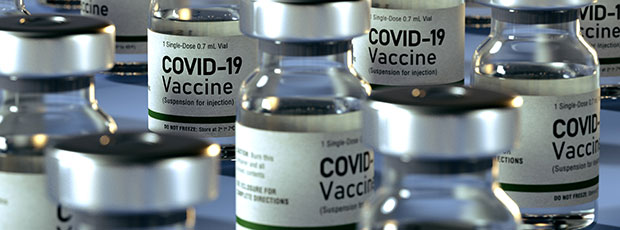Your weekly digest of policy news, funding competitions, and calls for evidence.
What’s been in the news?
Industry and Government Covid-19 support
A hygiene campaign launched by SCI Corporate partner Unilever and the UK Government to tackle the spread of covid-19 has reached one billion people globally. The partnership has provided soap, sanitiser, surface disinfectants, hygiene advice, and access to hand washing facilities to people in 100 countries, especially in areas where there is little or no sanitation. It is said to be the world’s largest hygiene campaign aimed at tackling the spread of covid-19.
According to the Foreign, Commonwealth & Development Office, Unilever and the Government have worked with the United Nations (UN), charities, and other partners to train 140,000 staff to deliver hygiene skills in their communities and install 500,000 hand washing stations around the world including in Bangladesh and Iraq. In addition, 75 million Unilever hygiene products have been delivered to countries in South America, Europe, Africa, Asia, South East Asia and the Middle East, and information campaigns have been run in 37 countries to highlight the importance of hand washing and disinfecting surfaces in stopping the spread of the virus.
Read the SCI news article for more information on this topic
In similar news, the UK government has launched a Pandemic Preparedness Partnership, which will be chaired by Chief Scientific Adviser, Sir Patrick Vallance. The PPP, a global initiative, will provide £16 million of funding for the Coalition for Epidemic Preparedness Innovations (CEPI). The funding will be used for vaccine manufacturing capacity and critical research and development around variants and the rapid development of new vaccines in response to them. The public-private partnership will bring together industry, international organisations and other leading experts. The PPP will also advise the UK G7 Presidency on how to meet Prime Minister Boris Johnson’s target of reducing the time to develop a vaccine from 300 to 100 days.
Patrick Vallance commented: ‘Covid-19 has shown us that it’s possible to develop and deploy high-quality vaccines much faster than previously imagined. We have brought together the Pandemic Preparedness Partnership to see whether this can be accelerated even further and applied to the development of medicines and diagnostic tests.’
In additional news, a UKRI report has found that four fifths of PhD students have requested an extension for their research, the most common reason being a lack of access to research resources and facilities during the pandemic. A total of £19 million was made available to support PhD students with UKRI recently announcing a £7 million to doctoral students on grants with limited flexibility to fund extensions. Further outcomes from this report can be found on the UKRI website.
EU sets out rules and actions on path to global AI hub
The European Commission has set out a proposal for new rules and actions with the aim of ‘making Europe the global hub for trustworthy Artificial Intelligence.’
A new legal framework on Artificial Intelligence (AI), alongside a Coordinated Plan with Member States; ‘will guarantee the safety and the fundamental rights of people and businesses, while strengthening AI uptake, investment and innovation across the EU,’ the Commission said in a statement. There is also a provision for AI on machinery.
The AI regulation will encompass ‘proportionate and flexible rules,’ which will address the specific risks posed by AI systems and set the highest standards worldwide. The Coordinated Plan will outline the policy changes and investments that are needed at Member State level to ‘strengthen Europe’s leading position in the development of human-centric, sustainable, secure, inclusive and trustworthy AI.’
The Commission said that AI rules will follow a risk-based approach. Unacceptable risk will be applied to AI systems which pose a clear threat to safety, including those that seek to ‘manipulate human behaviour to circumvent users’ free will.’ High-risk areas include critical infrastructure, employment, essential private and public services and administration of justice. In addition all remote and biometric identification systems are considered high-risk. Systems such as chat bots are considered limited risk while things such as AI-enabled video games are minimal-risk.
Read the SCI news article for more information on this topic
Net zero plans surround US Climate Summit
The United Nations Environment Programme, with the Prince of Wales’ Sustainable Markets Initiative, co-launched the Net Zero Financial Alliance that brings together existing and new net zero finance initiatives into one sector-wide strategic forum: The Glasgow Financial Alliance for Net Zero (GFANZ). All initiatives in GFANZ require signatories to set science-aligned interim and long-term goals to reach net zero no later than 2050 in line with Race to Zero’s criteria.
UK Prime Minister, Boris Johnson, said: “Uniting the world’s banks and financial institutions behind the global transition to net zero is crucial to unlocking the finance we need to get there – from backing pioneering firms and new technologies to building resilient economies around the world. The Glasgow Financial Alliance for Net Zero will lead this charge ahead of COP26 to scale-up our ambition, accelerate our shift and help us to build back greener together.”
In similar news, the US Department of Energy (DoE) has announced funding opportunities to reduce carbon emissions on the road. $162 million will support the next stage of the SuperTruck initiatives which aims to electrify freight trucking alongside expansion of electric vehicle (EV) infrastructure. The DoE has also released a joint statement with India on launching the US-India Climate and Clean Energy Agenda 2030 Partnership. The Partnership aims to mobilize finance and speed clean energy deployment, demonstrate and scale innovative clean technologies needed to decarbonize sectors including industry, transportation, power, and buildings.
Finally, the UK Government has updated its Industrial Decarbonisation Strategy which sets out the roadmap for a low-carbon industrial sector by 2050. Download the strategy in full (PDF). In similar news, a new EU Climate Law has increased the EU’s 2030 emissions reductions target from 40% to at least 55%, an agreement reached by MEPs just a few days before US President Biden hosts a Leaders’ Summit on Climate at which 40 world leaders were in attendance. At this summit, the UK Prime Minister said: ‘As host of COP26, we want to see similar ambitions around the world and we’re working with everybody, from the smallest nations to the biggest emitters to secure commitments that will keep change to within 1.5 degrees.’

Findings of the report of climate assembly UK
The committee calls for evidence on issues around Scotland’s renewable energy targets and sources as well as employment in the renewable energy sector.Deadline: 10 May 2021
Renewable energy in Scotland
The committee welcomes evidence submissions on the Climate Assembly UK and its process and recommendations and its impact across sectors.Deadline: 14 May 2021
Sustainability of the built environment
The Environmental audit Committee is launching an inquiry into the sustainability of the built environment. This includes best routes to achieve net zero through low-carbon construction materials.Deadline: 15 May
UK-EU trading relationship
The committee is seeking views on the UK-EU trading relationship and issues relating to these new arrangements including likely future developments in the UK-EU trading relationship.Deadline: 31 December 2021
Further information can be found on the UK Parliament website
Horizon Europe
The first funding calls under Horizon Europe have been launched through the European Research Council. These are:
- Advanced grants - opening 20 May 2021
To find more about eligibility for Horizon Europe funding for your sector, view the national contact points on the government website.
Further information on the SME and start-up fund can be found on the European Commission website.
NATEP helping SMEs innovate in aerospace – Spring 2021
UK registered businesses can apply for a share of up to £2.5 million to carry out industry-led civil aerospace collaborative R&D projects and help SMEs to develop their own innovative technologies. Projects can last between 12-18 months and must cost between £100,000 and £300,000.Deadline: 19 May 2021
Innovate UK Smart Grants January 2021
Opportunity for UK registered organisations to apply for a share of up to £25 million from Innovate UK for commercially viable R&D innovations. Projects can last between 6 to 36 months.Deadline: 26 May 2021
ISCF Digital Security by Design – business led demonstrators phase 1 EOI
UK registered businesses can apply for up to £6 million to collaborate on market demonstrator projects showcasing the use and adoption of digital security by design technologies. Projects must last between 24 and 36 months.Deadline: 26 May 2021
SBRI Competition - Assays for SARS-CoV-2 cellular immune responses
Organisations can apply for a share of £1.5million inclusive of VAT, to develop assay systems to define the magnitude and profile of cellular immune responses to SARS-CoV-2. Projects must last up to 12 months.Deadline: 26 May 2021
SME Brexit Support Fund
Businesses established in the UK for at least 12 months can apply for up to £2,000 in total through two types of grants to help with training or professional advice. Apply online on the Government website.Deadline: 30 June 2021
You can find further details of the funding calls on the Government website




